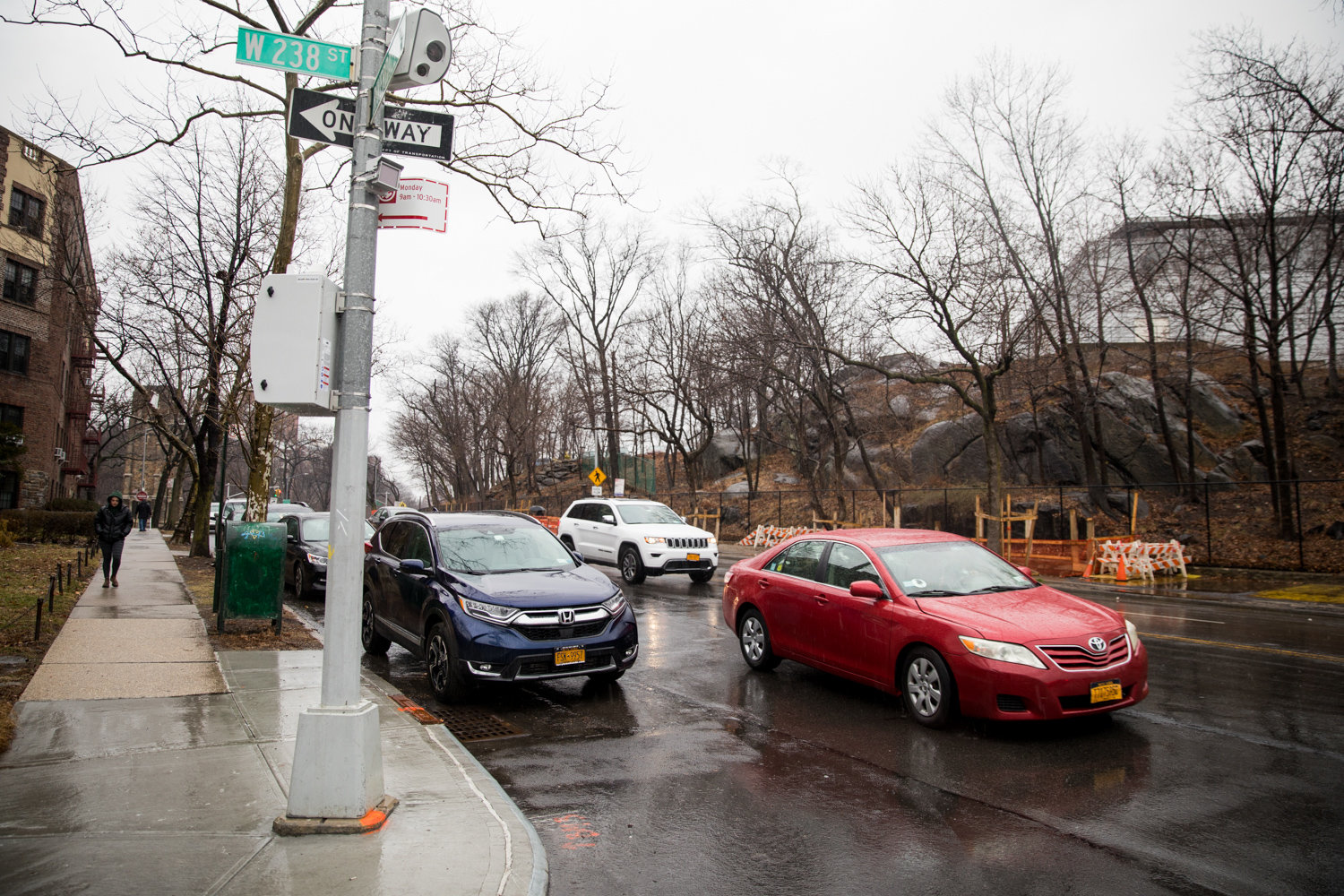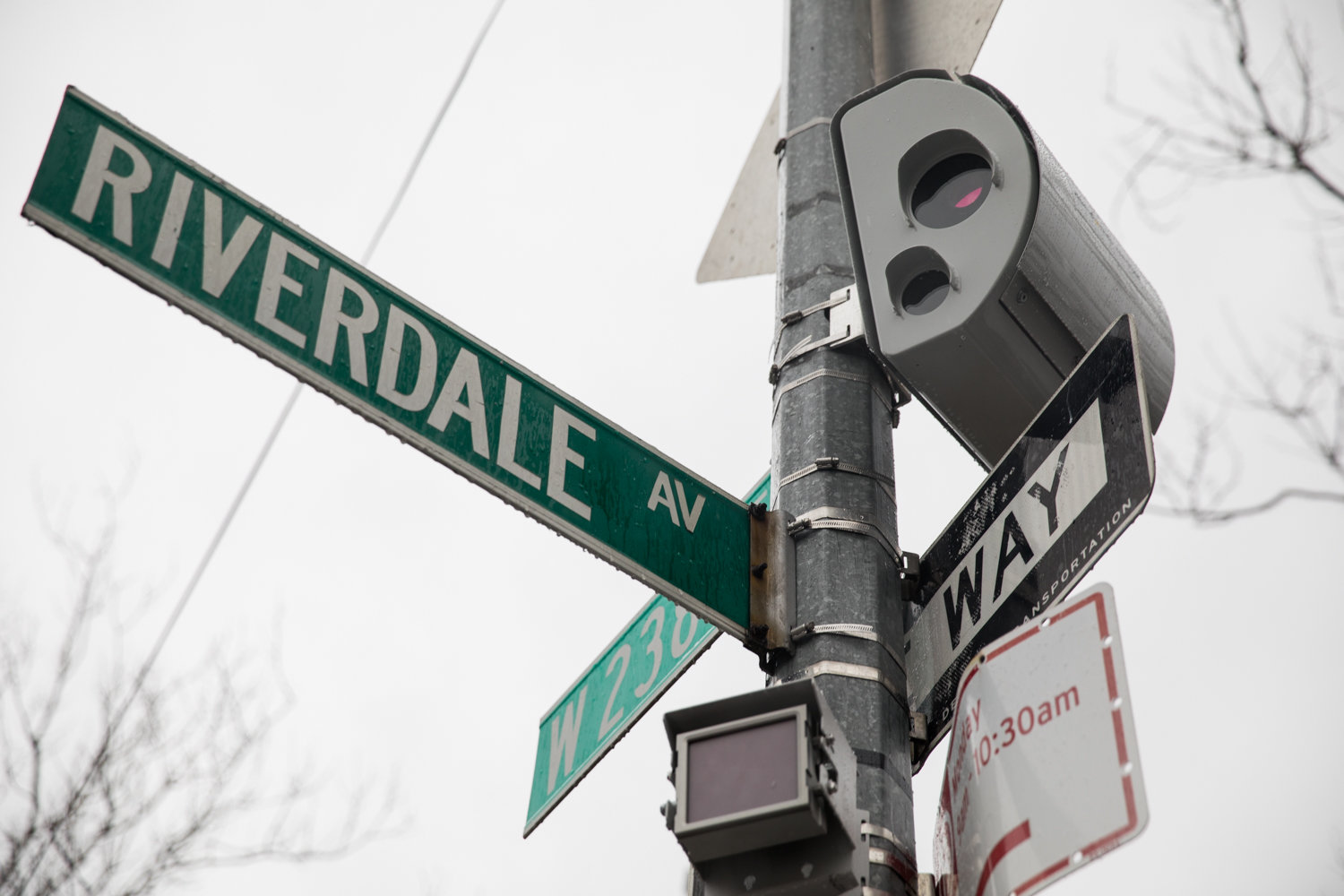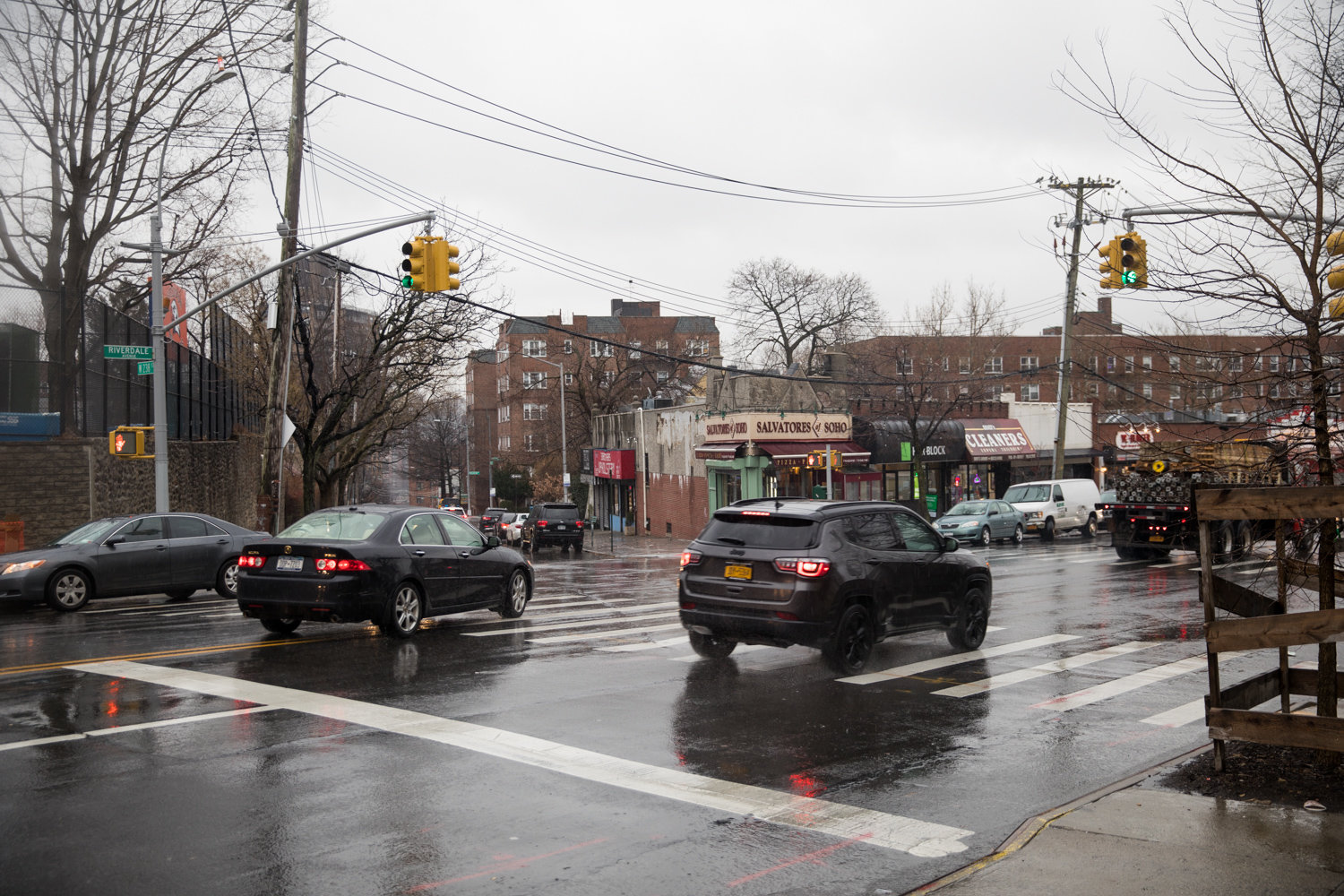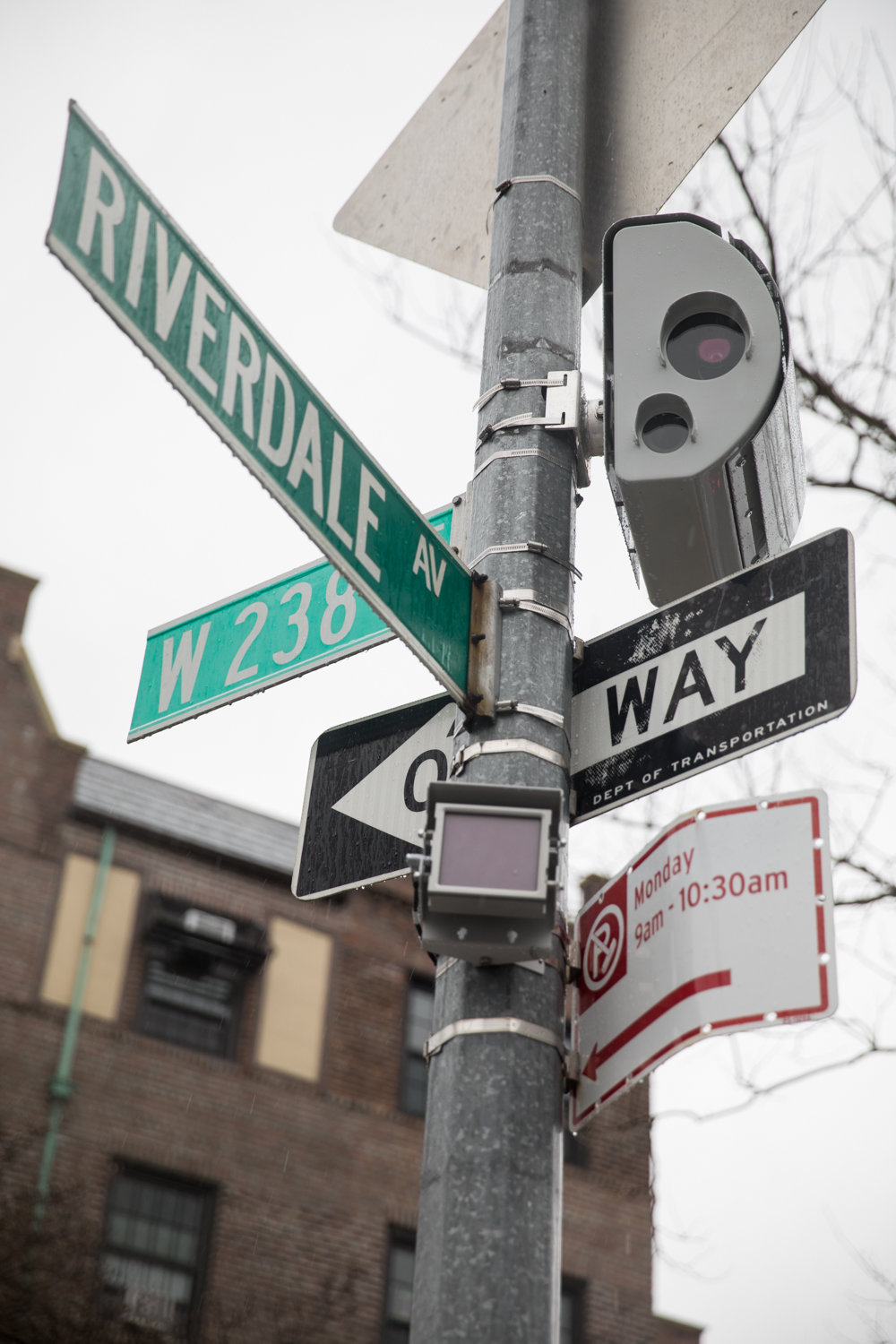Speed cameras race in, forcing drivers to slow down
Eagle-eyed drivers and even pedestrians may have noticed a new addition to the landscape at West 238th Street and Riverdale Avenue — a shiny white speed camera.
The camera is in good company — the northern part of Riverdale Avenue already has several cameras, especially around the campus of P.S. 81 Robert J. Christen. School zone speed cameras ticket drivers traveling at least 36 mph, more than 10 mph over the citywide speed limit of 25.
Speed cameras have been a hot topic in the northwest Bronx. When the city’s program first rolled out, then-mayor Michael Bloomberg visited P.S. 81 with then-state Sen. Jeff Klein to talk about the virtues of the program as it kicked off.
Yet, just five years later, the program was in jeopardy as Klein’s Republican-controlled state senate stalled camera funding. Gov. Andrew Cuomo saved the program, using emergency funds to keep the speed cameras operational.
Speed cameras can be installed anywhere within a quarter-mile of a school, according to a spokesperson with the city’s transportation department.
Those cameras use radar, the same ones used by police officers to clock speeding drivers. If a car is traveling more than 36 mph, a camera click captures the license plate. A $50 ticket will be mailed to the driver — quite a bit less than an officer-issued ticket, which can cost more than $150.
Riverdale’s newest camera borders the campus of Ethical Culture Fieldston School, which serves elementary through high school students. It’s also a site where about a dozen pedestrian injuries have occurred since 2015, according to CrashMapper.org.
Last year, elected officials called for a traffic study of Riverdale Avenue from West 230th to West 236th streets after a car hit father and daughter David and Amy Keck nearby. The study was intended to assess traffic-calming measures on the busy street filled often with fast-moving traffic. At the same time, DOT took advantage of a new law allowing them to install more cameras in up to 750 additional school zones citywide. The city agency has been working at a clip of about 60 new cameras per month.
That law also expanded the hours speed camera can operate, meaning the devices are now issuing tickets between 6 a.m. and 10 p.m. every weekday, even during the summer.
While speed cameras can draw ire from local drivers, DOT has found that the presence of cameras reduces speeding by more than 60 percent. They’ve also found that 80 percent of drivers who receive a ticket don’t get another, showing that it can indeed be a deterrent to speeding.
Some groups, however, say that the speed cameras aren’t enough, and that they’re too lenient. Camera tickets only cost a driver $50, far less than tickets issued by a police officer. And while 36 mph might not feel fast from within the car, it can be dangerous for pedestrians.
“Speeding is the No. 1 cause of traffic fatalities,” said Amy Cohen, a member of the Families for Safer Streets advocacy group.
Cohen’s 12-year-old son Sammy was killed in 2013 after a car hit him in Brooklyn as he was chasing a ball into the street.
Families for Safer Streets is composed of family members of people killed or seriously injured by cars. Lowering speed limits was one of Cohen’s first priorities, and the organization pushed the city to drop from the original speed limit of 30 mph citywide to 20. The current limit, 25 mph, Cohen said, was a compromise.
Pedestrians are twice as likely to be killed if hit by a car traveling at 30 mph than 25 mph, according to the DOT. A pedestrian hit by a car traveling at 40 mph — just over the limit for a speed camera ticket — has an 85 percent chance of dying.
While being caught by a camera for traffic violations like running red lights and speeding is different from being pulled over by a cop, a Brooklyn city councilman, Brad Lander, is pushing his Reckless Driver Accountability Act that would require drivers who rack up 15 speed camera tickets or five red light camera tickets in 12 months to enroll in a driving course. If they refuse to complete the course, the city will impound their car until they decide to take part.
The bill could pass city council as early as this week.
“If people can’t take the course or change their behavior, the city needs to seize their car so they can’t kill somebody,” Cohen said. “My son’s life was worth 90 minutes. The 296 (pedestrians killed) are worth more than 90 minutes.”
Pedestrian fatalities in car accidents should be treated as an epidemic, Cohen said, and while current progress is good, she wants to see the city do more to continue making streets safer.
“Speed cameras are a huge step forward, speed cameras in 750 school zones,” Cohen said. “It’s a big step forward, but it’s not fast enough.”













